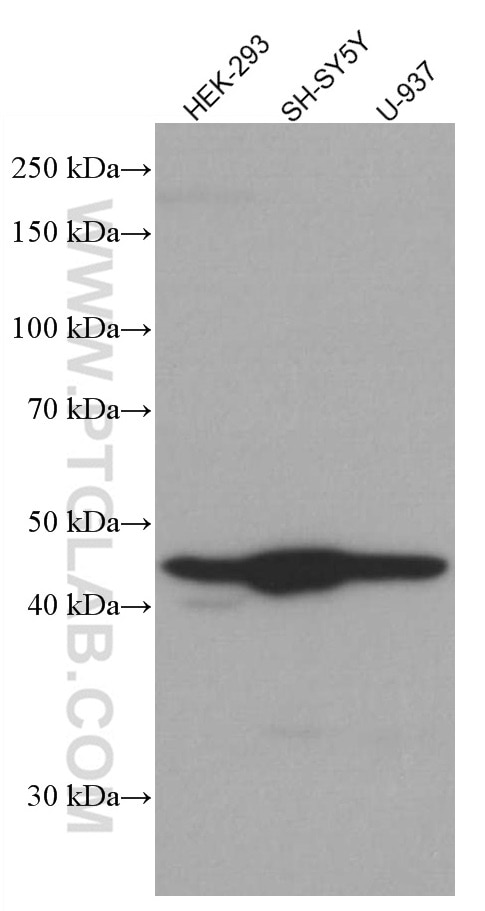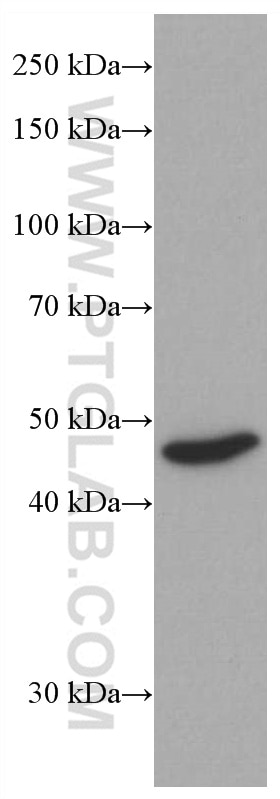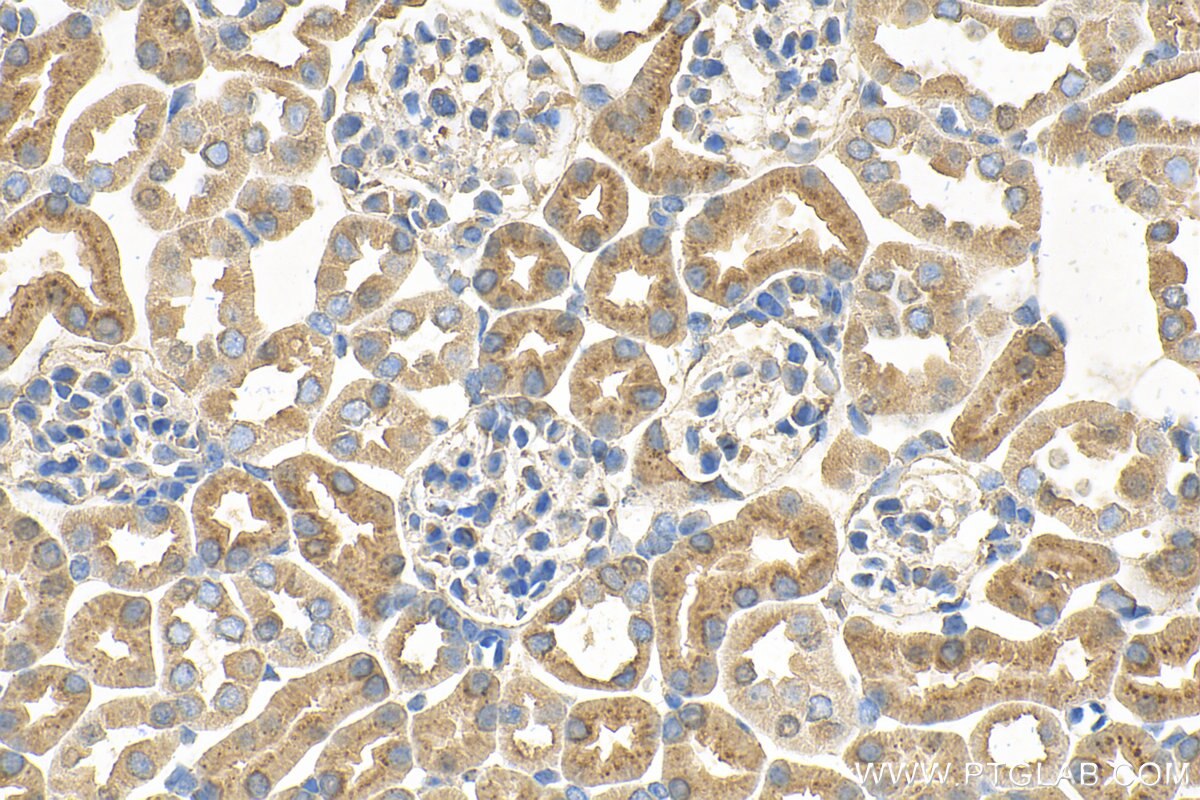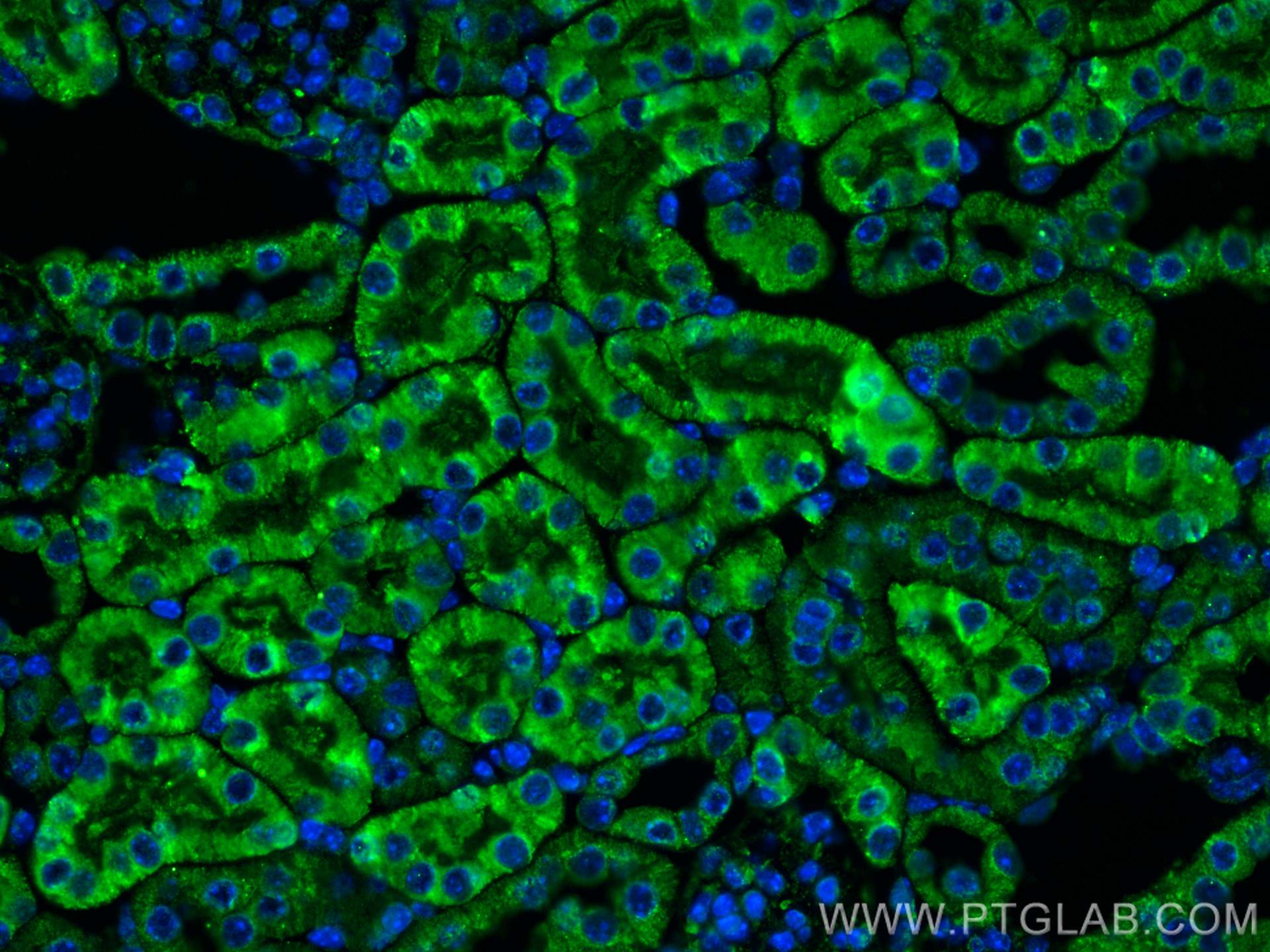Tested Applications
| Positive WB detected in | HEK-293 cells, Jurkat cells, SH-SY5Y cells, U-937 cells |
| Positive IHC detected in | mouse kidney tissue Note: suggested antigen retrieval with TE buffer pH 9.0; (*) Alternatively, antigen retrieval may be performed with citrate buffer pH 6.0 |
| Positive IF-P detected in | mouse kidney tissue |
Recommended dilution
| Application | Dilution |
|---|---|
| Western Blot (WB) | WB : 1:2000-1:10000 |
| Immunohistochemistry (IHC) | IHC : 1:250-1:1000 |
| Immunofluorescence (IF)-P | IF-P : 1:50-1:500 |
| It is recommended that this reagent should be titrated in each testing system to obtain optimal results. | |
| Sample-dependent, Check data in validation data gallery. | |
Published Applications
| WB | See 1 publications below |
Product Information
66915-1-Ig targets CX3CR1 in WB, IHC, IF-P, ELISA applications and shows reactivity with human, mouse samples.
| Tested Reactivity | human, mouse |
| Cited Reactivity | mouse |
| Host / Isotype | Mouse / IgG1 |
| Class | Monoclonal |
| Type | Antibody |
| Immunogen |
CatNo: Ag27698 Product name: Recombinant human CX3CR1 protein Source: e coli.-derived, PET28a Tag: 6*His Domain: 56-231 aa of BC028078 Sequence: LTNSKKPKSVTDIYLLNLALSDLLFVATLPFWTHYLINEKGLHNAMCKFTTAFFFIGFFGSIFFITVISIDRYLAIVLAANSMNNRTVQHGVTISLGVWAAAILVAAPQFMFTKQKENECLGDYPEVLQEIWPVLRNVETNFLGFLLPLLIMSYCYFRIIQTLFSCKNHKKAKAIK Predict reactive species |
| Full Name | chemokine (C-X3-C motif) receptor 1 |
| Calculated Molecular Weight | 40 kDa |
| Observed Molecular Weight | 44 kDa |
| GenBank Accession Number | BC028078 |
| Gene Symbol | CX3CR1 |
| Gene ID (NCBI) | 1524 |
| RRID | AB_2882242 |
| Conjugate | Unconjugated |
| Form | Liquid |
| Purification Method | Protein G purification |
| UNIPROT ID | P49238 |
| Storage Buffer | PBS with 0.02% sodium azide and 50% glycerol, pH 7.3. |
| Storage Conditions | Store at -20°C. Stable for one year after shipment. Aliquoting is unnecessary for -20oC storage. 20ul sizes contain 0.1% BSA. |
Background Information
CX3CR1, also known as GPR13, V28, and fractalkine receptor, belongs to the 7-transmembrane G protein-coupled receptor (GPCR) family. It is expressed in microglia, astrocytes, NK cells, monocytes/macrophages, and a subpopulation of T cells. CX3CR1 is the receptor for fractalkine (CX3CL1) and mediates both its adhesive and migratory functions. It also acts as a coreceptor with CD4 for HIV-1 virus envelope protein (in vitro), and some variations in the gene of CX3CR1 lead to increased susceptibility to HIV-1 infection and rapid progression to AIDS. Defects in CX3CR1 are a cause of susceptibility to age-related macular degeneration type 12 (ARMD12).
Protocols
| Product Specific Protocols | |
|---|---|
| IF protocol for CX3CR1 antibody 66915-1-Ig | Download protocol |
| IHC protocol for CX3CR1 antibody 66915-1-Ig | Download protocol |
| WB protocol for CX3CR1 antibody 66915-1-Ig | Download protocol |
| Standard Protocols | |
|---|---|
| Click here to view our Standard Protocols |










